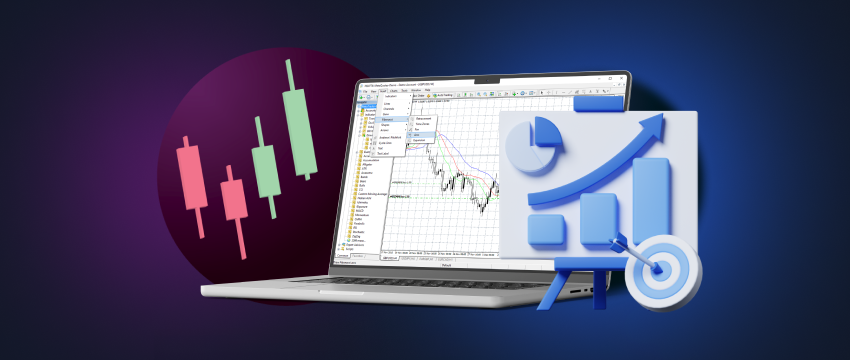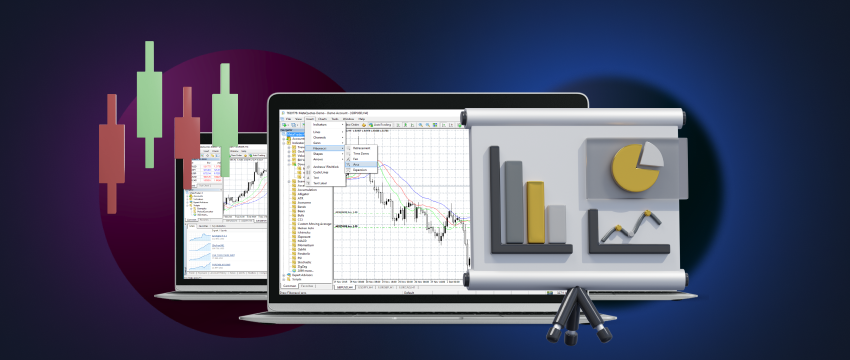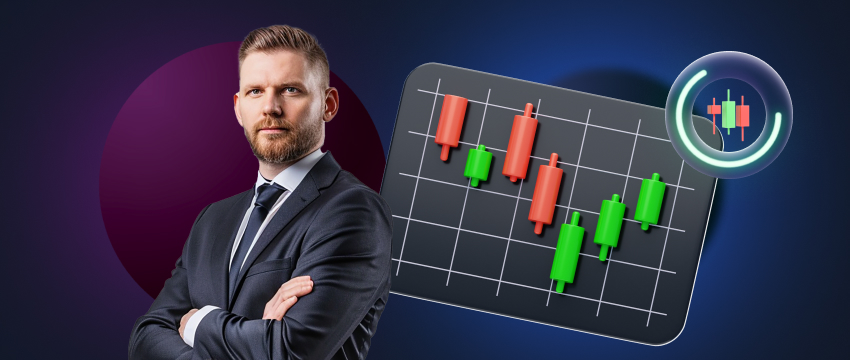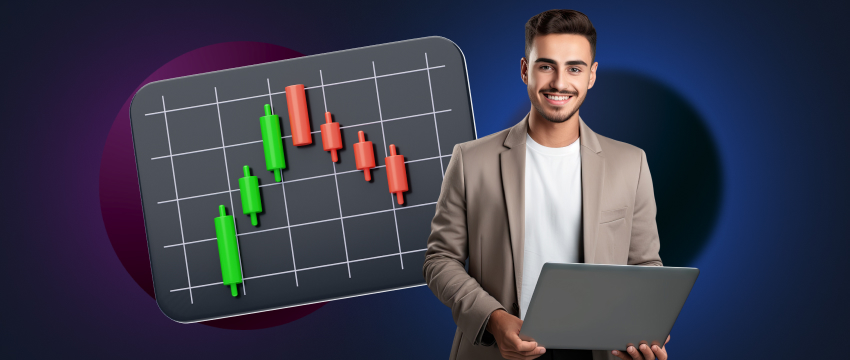Forex trading has become more popular in recent years. It attracts traders of all skill levels. People from all around the world participate in it.
However, the key question is – is forex trading a skill or simply a gamble? Let’s explore this.
The forex market is the most active financial market in the world.
Traders are constantly opening and closing positions. It operates 24 hours a day, five days a week. Their aim is to profit from the price fluctuations of currency pairs by speculating on price movements.
However, the forex market is highly volatile. Currency prices are influenced by various factors. These include geopolitical instability, economic news releases, and natural disasters, among others.
These factors can cause rapid and unpredictable price swings, making forex trading particularly challenging. In such an environment, a trader’s skills play a significant role in determining their potential for success.

Essential skills for forex trading
It’s easy to say that a trader needs certain skills to maximise profits, but what does this involve? In practice, successful forex trading requires a set of skills similar to those needed in other high-stress professions.
Key skills include analytical thinking, emotional control, and the ability to make quick, informed decisions under pressure.
1. The role of patience, focus and discipline:
Successful forex trading demands a high level of emotional discipline. Traders must be self-aware to manage emotions like fear and greed. These emotions can lead to impulsive decisions.
Experienced traders develop patience, focus and discipline to maintain a consistent approach. This often requires creating a trading plan and strategy.
The plan should align with the trader’s individual personality. It should also match their temperament and risk tolerance. Sticking to this plan is crucial for success.
2. The importance of research and analysis:
Skilled forex traders are constantly seeking up-to-date information and data that could impact their chosen financial instruments, whether in forex or other markets.
Up-to-date information allows them to quickly capitalise on trading opportunities as they arise. For many traders, this often involves monitoring the news closely or making use of an التقويم الاقتصادي to track important releases.
Regarding analysis, skilled traders are proficient in both technical and fundamental analysis, with their expertise depending on their trading style. Scalpers, day traders and swing traders, often prioritise technical analysis.
This involves using charts to identify price signals and price patterns. By examining historical price action, they aim to spot patterns and predict future price movements.
On the other hand, fundamental analysis focuses on an asset’s intrinsic value before making a trade. This approach involves analysing the wider economy, the financial health of the asset’s related company, and the state of the industry in which that company operates. Analysts gather and interpret this data to forecast market trends and determine the asset’s value.

3. The importance of continuous learning:
Successful forex traders dedicate a substantial amount of their time in continuously learning about and understanding the forex market.
This includes studying currency pairs, the factors influencing currency fluctuations (e.g. market sentiment, political tensions, etc), and developing strategies for executing different types of trades.
An important part of trading education also involves mastering technical and fundamental analysis which are essential for making informed trading decisions.
There is no shortage of resources available for traders to expand their knowledge. The internet offers a wealth of educational resources to learn from, and forex brokers like T4Trade provide extensive educational materials, including free podcasts, webinars, eBooks, videos-on-demand, Live TV and a real-time Economic Calendar.
Additionally, T4Trade’s blogs cover a diverse range of trading topics, offering valuable insights to help you improve your skills and expertise.
4. Choosing the right forex trading strategy:
A skilled trader selects a trading strategy that matches their personality, risk tolerance, budget, and experience level. To find the strategy that best suits you, start by identifying your objectives – what you aim to achieve through trading.
It’s essential to determine how much capital you have available, without tapping into savings or funds set aside for important events like buying a home, investing in a pension, buying a car, etc. Educate yourself on various popular trading strategies to find the one that aligns with your needs and goals.
Develop a trading plan that incorporates your chosen trading strategy, whether it’s scalping, swing trading, التداول اليومي, news trading, or position trading, and make sure it includes effective risk management measures to protect your capital.
5. Risk management strategies:
Effective risk management is essential for success in forex trading. Skilled traders understand the importance of implementing strategies to protect their capital.
This includes using tools like stop-loss and take-profit orders to minimise potential losses and hold onto their funds. To further mitigate risk, traders may also turn to automated (algorithmic) trading that eliminates emotional decision-making from the process, reducing the risk of adverse trading decisions.
Automated trading relies on trading robots (Expert Advisors or EAs) to execute trades based on predetermined criteria or rules, ensuring more disciplined and consistent trading.
6. Enhancing forex trading skills with a demo account:
Forex traders often refine their skills by using a demo trading account, a valuable tool that allows you to practice without risking real capital, regardless of experience level.
- A demo trading account simulates real market conditions, providing a realistic view of what live trading looks like.
- You can test a range of strategies on the demo account, from the simplest to the most complex, and evaluate outcomes.
- By using virtual funds to enter and exit trades, you can protect your own money while you gain valuable experience.
- Using a demo account also enhances your understanding of technical and fundamental analysis, leading to more informed trading decisions.
- It provides you with the time needed to gain experience, confidence and knowledge required before moving to a live trading environment.
Skill is an important part of forex trading, but it’s important to recognise that luck also plays a role. Factors like timing, market/investor sentiment, unexpected events or environmental disasters can influence currency movements, impacting trades in ways that have little to do with skill or experience.
However, by continuously expanding your knowledge and boosting your skills, you can better manage the unexpected and increase your chances of success in the forex market.

Trade with T4Trade
T4Trade provides a flexible trading environment with access to أكثر من 300 أداة متاحة للتداول across 6 asset classes, including shares, indices, forex, futures, metals and commodities.
Traders can choose from various account types tailored to their needs and expertise, and enjoy competitive spreads, quick execution of trades, and fast withdrawals or deposits.
With flexible leverage, T4Trade helps traders capitalise on various trading opportunities. However, it’s important to remember that higher leverage also comes with increased risk, so implementing proper risk measures is essential to protect your capital. A friendly customer support team is also available to assist with all queries via email or Live Chat.
You can enhance your forex trading skills with T4Trade’s comprehensive educational resources, such as podcasts, webinars, videos, blogs and more. These materials will help you build confidence and refine your strategies.
Overall, T4Trade offers plenty of resources and support to help you succeed in the forex market. Start your trading journey with T4Trade and use their exceptional features to achieve your trading goals.
إخلاء مسؤولية: This material is for general informational and educational purposes only and should not be considered investment advice or an investment recommendation. T4Trade is not responsible for any data provided by third parties referenced or hyperlinked in this communication.




